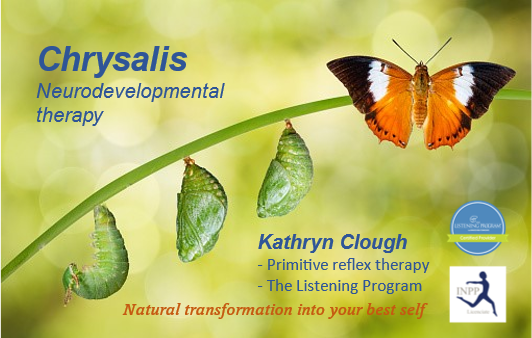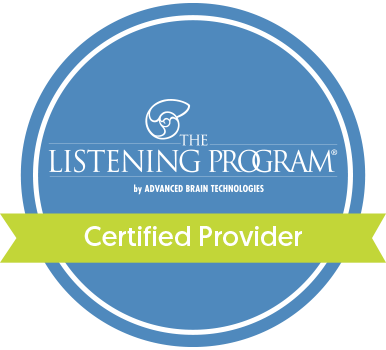Does your child struggle in some way at school?
Do they have, or show traits of, ADHD, Autism, Dyslexia, DCD, anxiety etc?
Diagnosis or not, they may have:
- Attention issues – easily distracted, or over-absorbed
- Clumsy, accident prone, not so good at sports or bikes
- Anxious, especially in new situations
- Poor self-image
- Oblivious to others
- Or over-sensitive
- Memory issues
- Reading, writing, or speech problems
- Grades not matching their effort
- Maybe they have a diagnosis, or maybe they don’t.
At Chrysalis Neurodevelopmental Therapy (NDT), we use evidence-based methods to get to the physical root of a multitude of difficulties in learning and life. We then seek to resolve them using a tailored programme of movement, sound, or touch.
Within 12 months, your child could
- Remember that list
- Improve their reading and writing
- Be more agile in sport
- Be less stressed, anxious, exhausted
- Make friends more easily
- Manage school work with less effort
- Get results which reflect their ability
- Begin to achieve their potential
- Live a more balanced life – physically and emotionally
At Chrysalis NDT, I offer reflex integration using the INPP method, and I am an authorised provider of The Listening Program. You can find out more about me here.
The programmes typically take 9 to 12 months to complete. The activities are straightforward, taking 5-15 minutes a day at a time to suit you.
The transformation may begin quickly – or you might not realise it’s happening until you stop and remember what things were like before! You will find more info in the FAQs.
Completing a program with Chrysalis NDT can change you for life – our clients never look back.
What is Neurodevelopmental Therapy?
It’s about brain development – most of which happens when we are very very young – while we were still in the womb or during infancy. By going back to our foundations, the changes we make can have beneficial effects in multiple areas of life.
The brain develops in response to sensory stimulation. In the womb, this primarily comes from movement (of the fetus in the amniotic fluid, and of their mother), and from sound. Both of these are detected in the ear, which is the first sensory organ to mature and develop its connections with the young brain. After birth, touch and vision supplement the sensory feast. If things don’t progress quite as they should at these crucial early stages of development (due to problems with sensory input, processing, or motor reactions), our internal wiring may not develop to be as efficient as it could be.
We can spot physical signs of this developmental delay in the brain by looking at our posture and movement. These signs may reveal where things have gone wrong, and what has been holding us back. Some of the signs are fairly obvious, e.g. if we have great difficulty learning to ride a bike or swim. Others are very subtle but can be even more impactful – if the neural pathways which govern the tiny muscles controlling our eye movements aren’t functioning optimally, there can be a huge impact on our reading or writing.
By recognising the root causes of these underdeveloped movement patterns, a tailored programme of sensory stimulation can allow the brain to develop as originally intended. INPP does this through movement, TLP through sound.
To find out more about the impact of neurodevelopmental therapy on children and families, you might like to watch the award-winning documentary Attention Please on Amazon Prime. And arrange to have a chat with me – use the Book Now button on the top bar.




